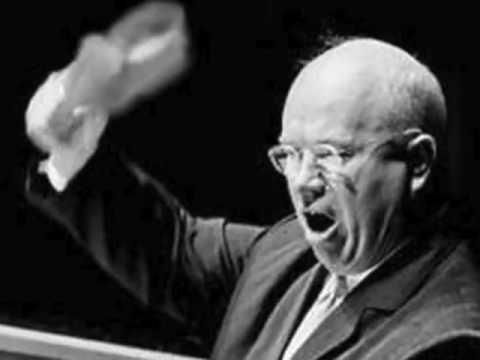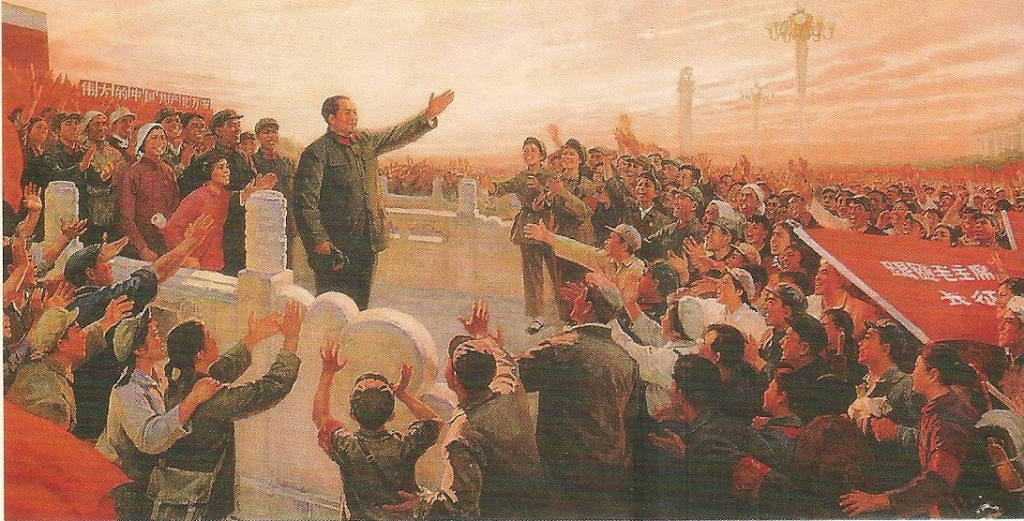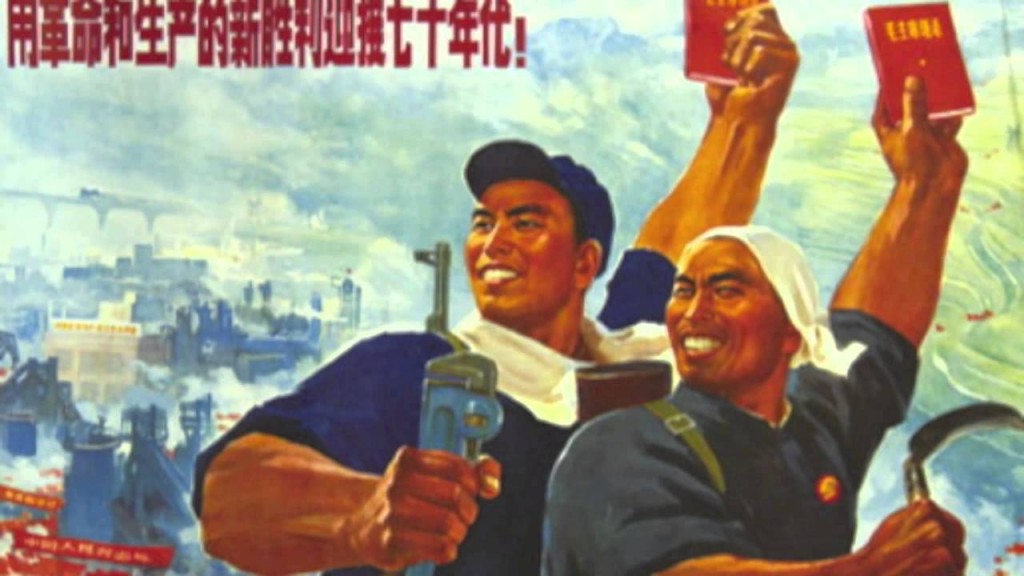Khrushchev Attempts to Rejuvenate Leninism. Stalin’s death (video in Russian) was a world- historical event. In 1953, the question was how to take advantage of the opportunity. The party’s new First Secretary,

Nikita Khrushchev, answered this question in one of the most dramatic speeches in the history of world communism.
-
“Z” (Martin Malia), “To the Stalin Mausoleum,” section VIII. Course Reader
-
Nikita Khrushchev’s secret speech to the 20th Congress of the CPSU, February 25, 1956: HERE. (Print and Read)
-
William Rosenberg and Marilyn Young, Transforming Russia and China, pp. 244-74.
20. DISCUSSION SECTION: Friday, February 27
We will not have discussion sections this week because you have been writing your papers. Greg will make arrangements for you to turn in your paper.
21. LECTURE: Monday, March 2
Crisis in Eastern Europe: Hungary and Poland. The striking difference between the tumultuous events in Hungary and Poland in 1956 is that one led to military intervention by Soviet bloc troops (see the video HERE of the Hungarian revolution) and the other did not. What did Hungary’s leaders do that Poland’s leaders managed to avoid? Were the issues different?
-
Previously secret: In an, at times, perversely sardonic speech, Nikita Khrushchev reports to party activists: November 4, 1956: HERE
-
Map of Budapest (for my lecture): HERE
22. LECTURE: Wednesday, March 4
Re-revolutionizing Communism in China: “The East is Red.“ Like Stalin’s terror in the Soviet Union, China’s Great Proletarian Cultural Revolution is an event that defies easy explanation, both because of its goals and because of its savage brutality (video). One question is why Mao unleashed his terror.

Another is why he was able to do it. Why would anyone agree to destroy one’s country in order to rebuild it? Among the peasantry and many young communists, there was enormous enthusiasm for the Cultural Revolution, as well as for the tragic Great Leap Forward that preceded it.
- Rosenberg and Young, Transforming Russia and China. Read the remaining chapters on China, including the Great Leap Forward and the Great Proletarian Cultural Revolution. (In my opinion, the authors’ account of the Cultural Revolution is a bit too positive. This decade-long assault on society led to the deaths of millions of people.
-
Mao Zedong, “On the Correct Handling of Contradictions Among the People,” February 27, 1957: HERE. (Print and Read)
-
Deng Xiaoping, “Correctly Disseminate Mao Zedong Thought,” May 25, 1960: HERE. (Print and Read)
-
“Circular on the Great Proletarian Cultural Revolution,” May 16, 1966: HERE (Print and Read)
-
If you feel like any background reading, read this previously secret CIA Intelligence Report: HERE

23. DISCUSSION SECTION: Friday, March 6
Please read Khrushchev’s “Report to the Twentieth Party Congress.” Write a paragraph about the following question: Is there an unavoidable contradiction between Khrushchev’s efforts to revitalize the communist party and his critique of Stalin’s policies?
MID-TERM BREAK: No classes March 9-13
The use of electronic devices of any kind, including laptops, video cameras, cell phones, and Notre Dame surveillance cameras, is not allowed in my classroom!
